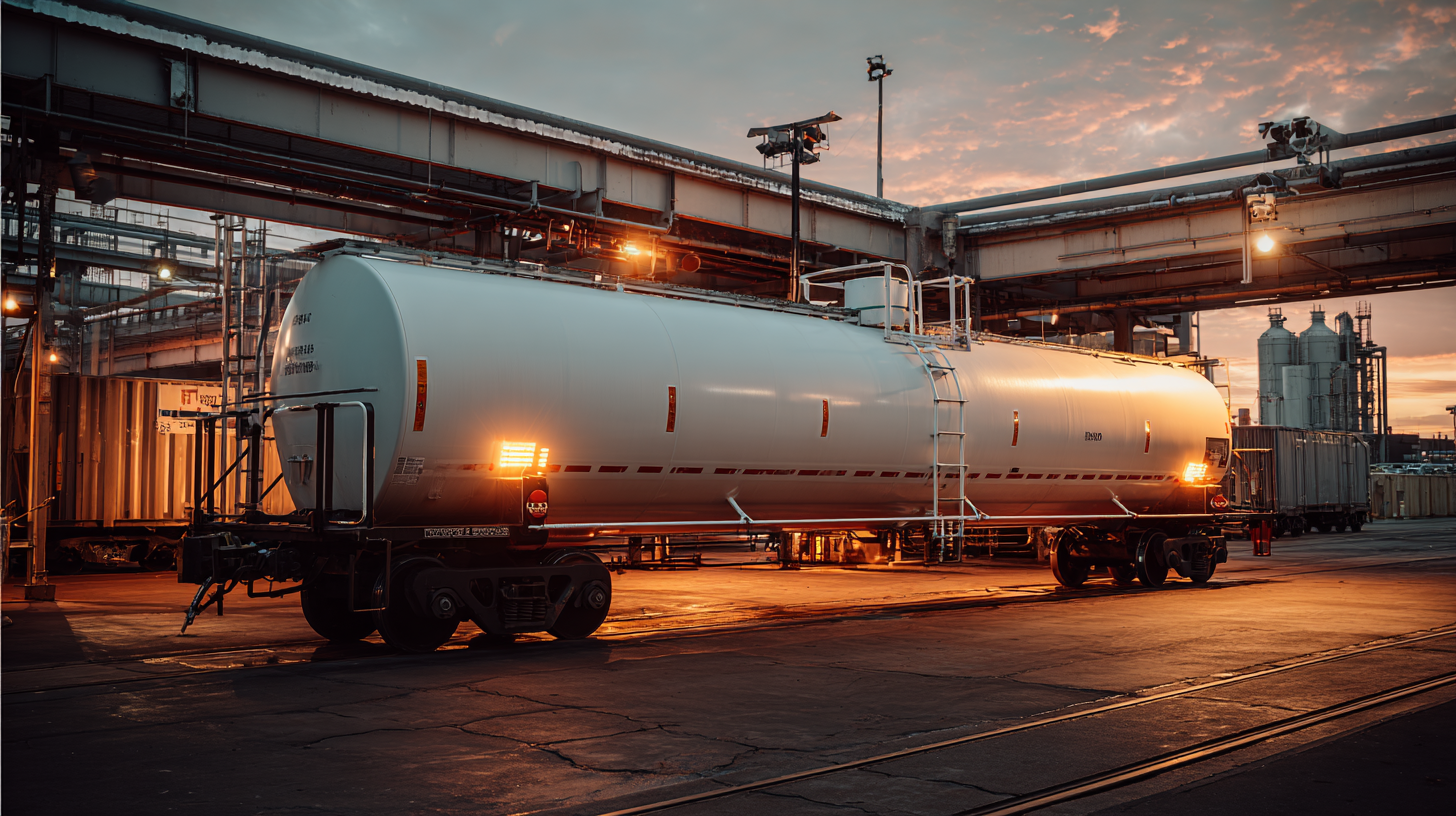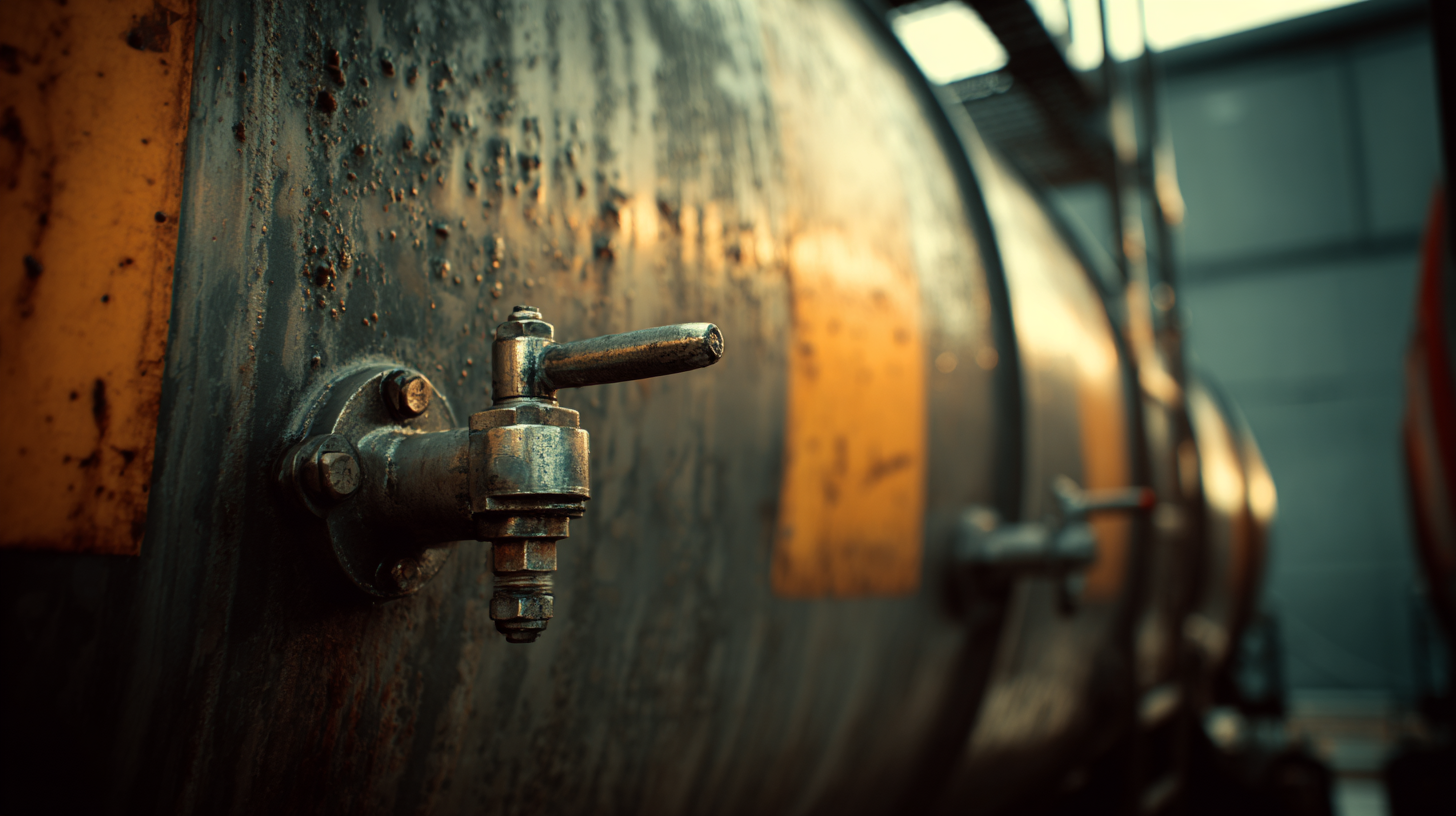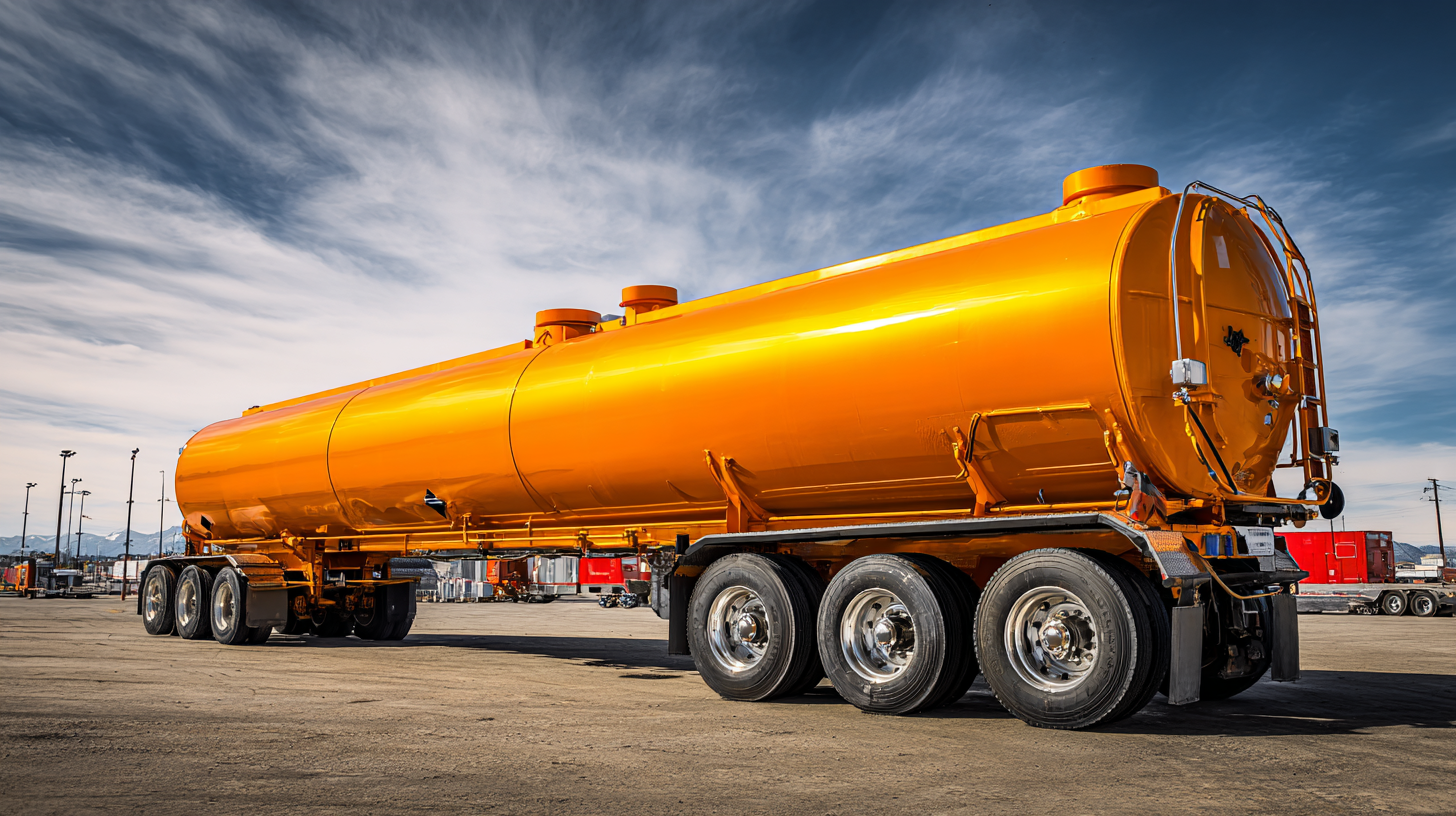Understanding the Importance of Proper Maintenance for Your Diesel Tank System
 Proper maintenance of diesel tank systems is crucial for ensuring the safe and efficient storage and use of diesel fuel, which is vital for numerous industries including transportation, construction, and agriculture. According to a report by the National Fire Protection Association (NFPA), over 30% of fuel oil spills and leaks originate from inadequate maintenance practices in storage facilities. Furthermore, the Environmental Protection Agency (EPA) estimated that poorly maintained tanks can lead to significant environmental pollutants that impact local ecosystems.
Proper maintenance of diesel tank systems is crucial for ensuring the safe and efficient storage and use of diesel fuel, which is vital for numerous industries including transportation, construction, and agriculture. According to a report by the National Fire Protection Association (NFPA), over 30% of fuel oil spills and leaks originate from inadequate maintenance practices in storage facilities. Furthermore, the Environmental Protection Agency (EPA) estimated that poorly maintained tanks can lead to significant environmental pollutants that impact local ecosystems.
Neglecting routine inspections and maintenance not only increases the risk of costly spills and downtime but can also affect the overall operational efficiency of your equipment. Understanding and implementing effective maintenance strategies for your diesel tank is essential to mitigate these risks, improve safety, and ensure compliance with regulatory requirements.
Key Components of Diesel Tank Systems Needing Regular Maintenance
Regular maintenance of diesel tank systems is crucial to ensure their longevity and operational efficiency. One key component that requires attention is the fuel filtration system. Over time, contaminants such as dirt and water can accumulate in the fuel tank, leading to clogged filters that compromise fuel quality. Scheduled inspections and timely replacement of filters help prevent engine performance issues and costly repairs.
Another vital part of diesel tank maintenance is the monitoring of tank integrity. This involves checking for leaks and corrosion, particularly in older tanks. Regular inspections can detect early signs of deterioration, allowing for repairs before serious damage occurs. Additionally, maintaining proper ventilation in the tank system is necessary to prevent the buildup of harmful vapors, which can create unsafe working conditions. By focusing on these components, operators can ensure their diesel tank systems remain in optimal condition, supporting reliable performance and compliance with safety regulations.
Importance of Regular Maintenance for Diesel Tank Systems
Essential Cleaning Procedures for Diesel Tanks to Prevent Contamination
 Maintaining a diesel tank system is crucial to ensure optimal performance and longevity. One of the most critical aspects of this maintenance is the cleaning procedures applied to the diesel tanks. Over time, contaminants such as water, sludge, and microbial growth can accumulate, leading to potential damage to the engine and fuel delivery systems. Therefore, regular cleaning is necessary to eliminate these harmful substances and maintain fuel quality.
Maintaining a diesel tank system is crucial to ensure optimal performance and longevity. One of the most critical aspects of this maintenance is the cleaning procedures applied to the diesel tanks. Over time, contaminants such as water, sludge, and microbial growth can accumulate, leading to potential damage to the engine and fuel delivery systems. Therefore, regular cleaning is necessary to eliminate these harmful substances and maintain fuel quality.
To effectively clean diesel tanks, a systematic approach should be employed. First, it’s important to empty the tank and inspect its interior for signs of contamination. This can include the presence of water or sediments. Using appropriate tools and cleaning agents, technicians can scrub the walls and bottom of the tank to remove any buildup. Additionally, it’s advisable to use filtering systems during the refueling process to trap any contaminants before they enter the tank. Implementing these essential cleaning procedures not only prevents contamination but also enhances the efficiency of the diesel tank system, ensuring that the engine operates smoothly and efficiently.
Scheduling and Performing Regular Inspections for Diesel Tank Systems
Scheduling and performing regular inspections for diesel tank systems is crucial for maintaining efficiency and safety. These inspections allow for the early detection of potential issues such as leaks, corrosion, or contamination. A systematic approach to scheduling these inspections ensures compliance with safety regulations and helps avoid costly repairs down the line. Inspections should be conducted at least annually, but more frequent checks are advisable depending on the site's conditions and usage levels.
During inspections, it is essential to assess both the physical integrity of the tank and the functionality of associated components like pumps, filters, and valves. Professionals should check for any signs of wear or damage, evaluate fuel quality, and ensure that all safety devices are operational. By establishing a routine maintenance protocol, facilities can extend the lifespan of their diesel tank systems, enhance operational efficiency, and safeguard against environmental hazards. Properly maintained systems not only protect investments but also contribute to sustainable practices in fuel management.
Understanding the Importance of Proper Maintenance for Your Diesel Tank System
| Inspection Date | Inspector Name | Tank Capacity (liters) | Last Maintenance Date | Next Scheduled Maintenance | Condition |
|---|---|---|---|---|---|
| 2023-01-15 | John Doe | 5000 | 2022-11-30 | 2023-07-15 | Good |
| 2023-03-10 | Jane Smith | 10000 | 2023-01-01 | 2023-09-10 | Fair |
| 2022-12-01 | Mark Johnson | 7500 | 2022-10-15 | 2023-06-01 | Needs Attention |
| 2023-04-22 | Emily Davis | 3000 | 2023-03-05 | 2023-10-22 | Good |
| 2023-02-14 | Lucas Brown | 8000 | 2022-12-20 | 2023-08-14 | Fair |
Effective Troubleshooting Techniques for Common Diesel Tank Issues
When it comes to maintaining a diesel tank system, effective troubleshooting techniques are crucial for identifying and resolving common issues that can arise. One prevalent problem is fuel contamination, which can result from water or debris infiltrating the tank. Regularly inspecting the fuel filters and conducting tests for water presence can help mitigate this risk. If contamination is detected, immediate action such as draining the tank and replacing the filters is essential to prevent damage to the engine and ensure optimal performance.
Another common issue involves fuel leaks, which can have serious environmental and financial repercussions. Observing any signs of fuel pooling around the tank or noticing unusual drops in fuel levels can indicate a leak. Utilizing leak detection methods, such as pressure testing or visual inspections of fittings and seals, allows for timely identification and repair of leaks. Additionally, implementing a routine maintenance schedule that includes checks for integrity and performance will aid in preventing future problems, thereby enhancing the longevity and efficiency of the diesel tank system.
Best Practices for Fuel Storage and Handling to Ensure Longevity
Proper maintenance of diesel tank systems is crucial for ensuring the longevity and reliability of fuel storage. One of the best practices is to regularly inspect and clean the tanks. This involves checking for sediment buildup and water accumulation, which can lead to fuel contamination and damage to the engine. Implementing a routine maintenance schedule allows for timely identification of issues, preventing costly repairs down the line.
Additionally, proper handling during fuel transfer is essential. Using quality filtration systems during loading and storage can significantly reduce the risk of particulates entering the fuel. It's also important to maintain appropriate temperatures within the tank to prevent condensation, which can introduce water into the diesel. By adhering to these best practices in both storage and handling, operators can maximize the lifespan of their diesel tank systems and ensure efficient operation.

Related Posts
-

Understanding the Importance of Proper Maintenance for Your Diesel Fuel Tank
-

7 Reasons to Choose a Diesel Transfer Tank with Pump for Your Business
-

Understanding the Benefits of Using Above Ground Diesel Storage Tanks in Various Industries
-

5 Best Diesel Fuel Tank Solutions for Your Business Efficiency
-

Why Understanding Diesel Tanks is Essential for Your Business Operations
-

Understanding the Benefits of a Diesel Transfer Tank with Pump for Efficient Fuel Management